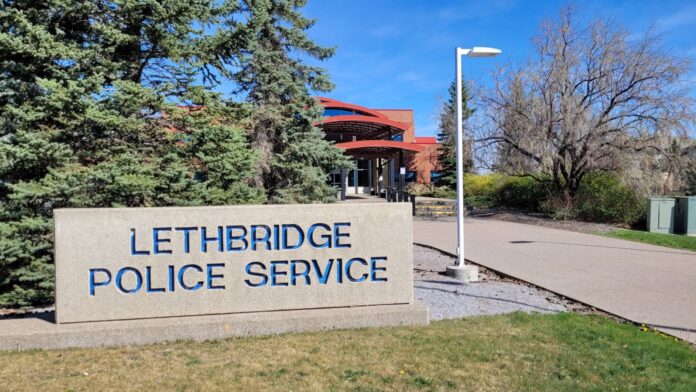Local emergency crews are teaming up to shine a light on what you should do if you are involved in or witness a minor collision.
The Lethbridge Police Service and Lethbridge Fire and Emergency Services say public education can help in improving road safety, ease traffic congestion and help responders when they are on scene of an incident like a fender bender.
Shawn Folk, Platoon Chief with LFES says there has been several close calls recently in which vehicles involved in collisions were left in live traffic lanes.
“Those incidents highlighted the need to engage with our community directly and explain how motorists can help keep everyone safe—including first responders—by taking the right steps after a crash,” Folk states.
Generally, emergency services are not dispatched to minor collisions unless injuries are reported, public property is damaged or there is ongoing danger.
If that does happen, drivers are being encouraged to follow these steps:
- Prioritize safety: check that everyone involved is not hurt. If someone is, call 911 right away to get medical assistance.
- Clear the road: if your vehicle can be driven safely, move it to a safe area, like a nearby parking lot, side street or shoulder. This lessens the risk of additional collisions, helps keep traffic flowing and ensures crews can access the scene.
- Collect and exchange information, including:
-
- Personal information: names, phone numbers, addresses and driver’s license numbers for all involved, including any witnesses.
-
- Vehicle information: license plate numbers, as well as the make, model, year, and colour of each vehicle.
-
- Insurance information: insurance provider and policy number.
-
- Collision details: time, date and the exact location of the incident.
- Report the collision:
-
- If the combined damage appears to be over $5,000, go to the Collision Reporting Centre at the LPS station as soon as possible. The reporting process can be started online and completed in person at the centre.
-
- If the combined damage appears to be less than $5,000, contact your insurance company to discuss options.
-
- The collision must be reported in the jurisdiction where it took place.
“Of course, when there’s a dangerous situation – like an injury or an impaired driver – it’s important that people call 911 and get the help they need as quickly as possible,” says Sergeant Tony Ramotowski of the LPS Traffic Response Unit.
“But for minor collisions, we’re asking people to help us keep traffic flowing and improve overall safety for everyone by knowing the proper steps to take.”
Folk adds that when it comes to other motorists driving by a collision, it is vital that they do not get distracted or speed through the scene.
“You want to get home too. You want to be part of the solution, not the problem. It’s been nicknamed ‘rubbernecking’ [so] slow down according to what the law is,” he remarks.
“Be safe [and] pay attention.”
Ramotowski says on the flipside of speed, going too slow can also lead to problems.
“If we’re at a collision scene, it is dangerous for people to take pictures of us on their phones as they’re driving. That is a chargeable offence – distracted driving – that could cause a secondary collision as well,” he says.
“Usually, we take plate numbers down and we’ll contact them at a later date.”
TRAFFIC ENFORCEMENT PROJECT
The LPS is undertaking an annual enforcement project to boost traffic safety.
It will be ongoing throughout the summer. In its first day, the LPS says officers apprehended one impaired driver, one suspended driver, and issued 46 tickets.
READ MORE: Traffic enforcement project targets a plethora of illegal behaviours
The project was launched in 2022 and has taken place every summer since.







